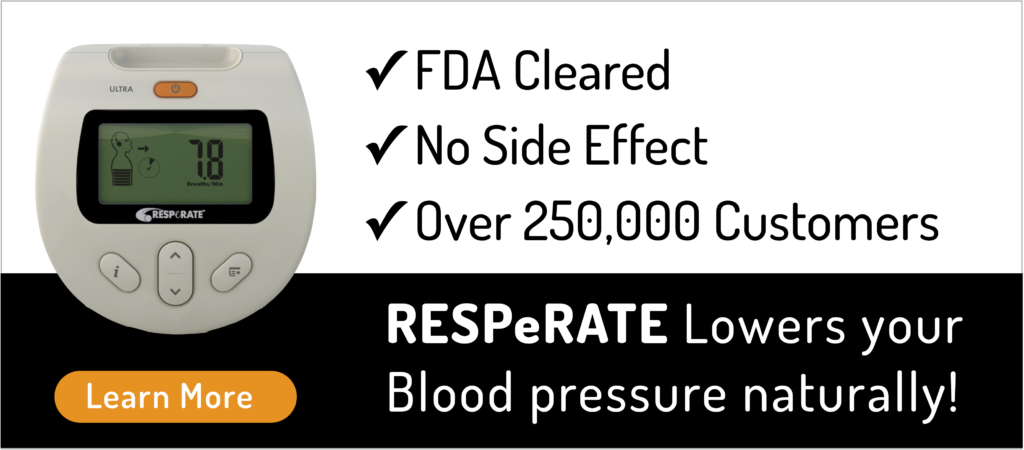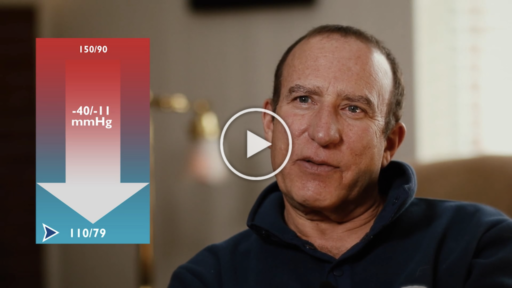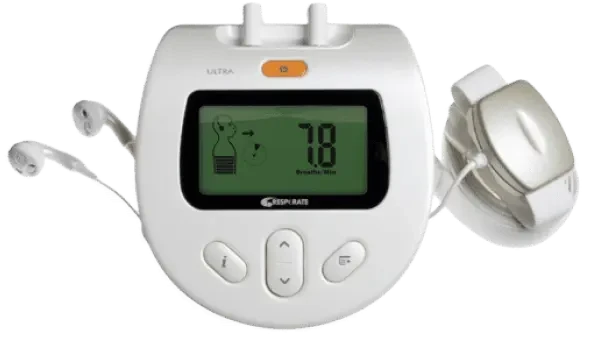High blood pressure is a major public health concern because it is a very common condition and a leading risk factor for other conditions, including heart attack, heart failure, stroke, chronic kidney disease, and cognitive decline.
The NIH Systolic Blood Pressure Intervention Trial (SPRINT), an NHLBI-supported study, was designed to answer three important research questions about how treating to a lower systolic blood pressure target—less than 120 millimeters of mercury (mm Hg)—affects the cardiovascular system, kidneys, and brain.
What is Considered High Blood Pressure?
Blood pressure readings have two numbers. The top one is your systolic number (the pressure in your blood vessels when your heart contracts). The bottom one is your diastolic number (the pressure in your arteries when your heart relaxes between beats). The two numbers together show whether your blood pressure is healthy or unhealthy. A high systolic (130 and over) or diastolic (80 and over) can count as high blood pressure. But healthy numbers may also be different for adults, children, and pregnant women.
The SPRINT-MIND Study
SPRINT is an acronym for “Systolic Blood Pressure Intervention Trial”. The Systolic Blood Pressure Intervention Trial (SPRINT) found evidence of cardiovascular benefit with an intensive lowering of systolic blood pressure (goal < 120 mm Hg) compared with the currently recommended goal (< 140 mm Hg) in older patients with cardiovascular risk but without diabetes or stroke.
Watch how Julie Lowered her Blood Pressure Naturally.
It was 170/110, this morning it was 120/80
Learn MoreIn treating hypertension, a lower systolic pressure is better than higher. This is the message of the Systolic Blood Pressure Intervention Trial (SPRINT), a large, federally funded study. It was halted early when patients at high cardiovascular risk who were randomized to a goal systolic pressure of less than 120 mm Hg were found to have better outcomes, including lower rates of heart failure, death from cardiovascular causes, and death from any cause, than patients randomized to a goal of less than 140 mm Hg.
SPRINT Study Results
The preliminary results of the SPRINT MIND trial, presented at AAIC 2018 (Alzheimer’s Association International Conference), provide the strongest evidence to date about reducing the risk of MCI (Myocardial Infarction) and dementia through the treatment of high blood pressure, which is one of the leading causes of cardiovascular disease worldwide.
According to Dr. Maria C. Carrillo, Ph.D., Alzheimer’s Association Chief Science Officer, “We welcome innovative clinical trial designs and therapeutic targets, and new methods of delivering therapies and attacking the disease, as we heard presented at AAIC,” Carrillo said.
“A new therapy has not been approved in a long time. We need bold steps — from basic science all the way through clinical trials — to provide better treatments and prevention strategies for the
“The Alzheimer’s Association also strongly regards the results reported at AAIC from important patient populations, including women, LGB individuals, and centenarians. Understanding the impact of Alzheimer’s and other dementias on individuals living with the disease and caregivers from diverse backgrounds is crucial to better treating and preventing Alzheimer’s, and to appropriately supporting and caring for people living with it now,” Carrillo added.
The SPRINT information supports the views of the ACC (American Cardiology College) taskforce and is a blow to critics who recommended less than two years ago that the numbers should be relaxed and that higher blood pressure readings are OK to creep upward as people aged.
What is Dementia?
Dementia is not a specific disease. It’s an overall term that describes a group of symptoms associated with a decline in memory or other thinking skills severe enough to reduce a person’s ability to perform everyday activities.
Alzheimer’s disease accounts for 60 to 80 percent of cases. Vascular dementia, which occurs after a stroke, is the second most common dementia type. But there are many other conditions that can cause symptoms of dementia, including some that are reversible, such as thyroid problems and vitamin deficiencies.
Uncontrolled high blood pressure can cause problems by damaging and narrowing the blood vessels in your brain. Over time, this raises the risk of a blood vessel becoming blocked or bursting.
If a blood cannot carry energy and oxygen to a part of the brain due to a blocked or burst blood vessel, some cells in the brain may be damaged, or even die.
This damage can sometimes affect a person’s memory, thinking, or language skills. This is called vascular dementia.
What Are the Effects of Vascular Dementia
The effects of vascular dementia depend on which parts of the brain are affected. Most commonly, people will have difficulty with concentrating or remembering things. Others will have difficulty with speaking or communication.
People with vascular dementia can also have difficulties moving around. Some people may be physically disabled or have problems with coordination.
How Can You Lower Your Risks?
Having high blood pressure is a risk factor for vascular dementia. If you can lower your blood pressure through lifestyle changes and medicines, you can reduce your risk.
Vascular dementia is most commonly caused by the effects of a stroke. You can lower your risk of a stroke by keeping your blood pressure and cholesterol levels down.
If you smoke, if you have an unhealthy diet, or if you are overweight or not very active, you should think about changing to a more healthy lifestyle. This will help lower your blood pressure and lower your risk of developing dementia.
Breathe Your Way to Lower Systolic Blood Pressure
In a study of more than 21,000 adults in Japan (some with normal and some with high blood pressure), patients who took six deep breaths in 30 seconds while waiting to see a doctor saw a more than a three-point drop in their systolic blood pressure compared with patients who rested for 30 seconds without deep breathing.
Getting in the habit of a daily deep-breathing session can extend these effects. Other clinical studies have found that patients who routinely practice slow breathing, some using an FDA-approved device called RESPeRATE to guide them, had consistently lower blood pressure.
 Eli Ben-Yehuda
Eli Ben-Yehuda 











Comments